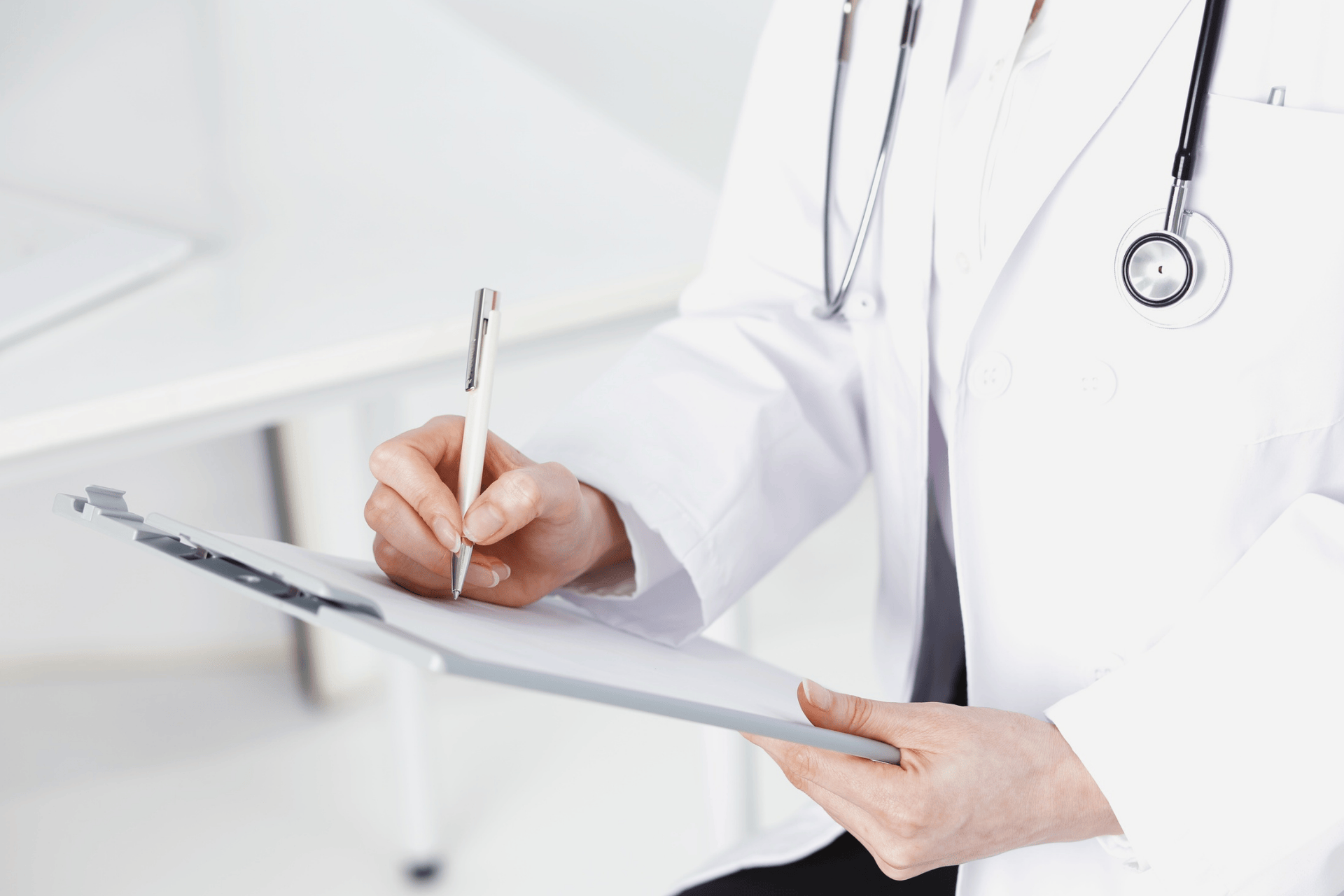Back Pain After Eating: Possible Causes
Understanding Back Pain After EatingExperiencing back pain after eating can be unsettling and confusing. While back pain is commonly associated with muscle strain or spinal [...]
Read More
Medically reviewed by Alan Lucks | MD, Alan Lucks MDPC Private Practice - New York on November 6th, 2025.
Gallbladder attacks typically trigger pain 30 minutes to 2 hours after eating fatty meals, radiating from the right upper abdomen to the shoulder blade or between shoulder blades.
Pancreatitis causes severe upper abdominal pain that bores through to the back, often accompanied by nausea and vomiting, especially after consuming alcohol or high-fat foods.
GERD can mimic cardiac symptoms by causing burning chest pain that radiates to the upper back, worsening when lying down within 3 hours of eating.
Maintaining upright posture for at least 2-3 hours after meals prevents acid reflux and reduces mechanical strain on spinal muscles from slouching during digestion.
Red flag symptoms requiring immediate medical attention include severe pain lasting over 6 hours, fever above 101°F, persistent vomiting, or yellowing of skin and eyes.
Experiencing back pain after eating can be unsettling and confusing. While back pain is commonly associated with muscle strain or spinal issues, pain that occurs specifically after meals can indicate a variety of underlying health concerns. Understanding the potential causes is important to ensure timely and appropriate care.
This article explores the possible reasons behind back pain after eating, ranging from digestive issues to more serious medical conditions. It also highlights when to seek professional advice and how modern telehealth services like Doctronic.ai can provide quick, reliable medical guidance from the comfort of your home.
Whether the pain is mild or severe, intermittent or persistent, knowing what might be causing it can help you take the right steps toward relief and better health.
 Digestive Causes of Back Pain After Eating
Digestive Causes of Back Pain After EatingGERD occurs when stomach acid flows back into the esophagus, causing irritation. This acid reflux can sometimes manifest as pain in the upper back or between the shoulder blades after eating, especially if the meal was large or fatty. The discomfort is often accompanied by heartburn, a burning sensation in the chest. In some cases, individuals may also experience a sour taste in the mouth, a chronic cough, or difficulty swallowing, which can further complicate the eating experience.
People with GERD may notice that certain foods or eating habits worsen their symptoms. Identifying and avoiding triggers, such as spicy or acidic foods, can help manage the pain. Lifestyle changes, including eating smaller meals, avoiding late-night snacks, alcohol and caffeine, and elevating the head during sleep, can also prove beneficial. However, persistent or severe symptoms should be evaluated by a healthcare professional, as untreated GERD can lead to more serious complications, including esophagitis or Barrett's esophagus.
Problems with the gallbladder, such as gallstones or inflammation (cholecystitis), can cause back pain after eating, particularly after consuming fatty meals. The pain typically occurs in the upper right abdomen but can radiate to the back or right shoulder blade. This discomfort often arises due to the gallbladder's role in digesting fats; when it is not functioning properly, the body struggles to process these foods, leading to pain and discomfort.
Gallbladder-related pain often comes with nausea, vomiting, or indigestion. In some cases, individuals may also experience bloating or a feeling of fullness even after eating small amounts. If you experience sharp or persistent pain, it is important to seek medical attention promptly, as untreated gallbladder issues can result in serious complications, including infection or pancreatitis. Dietary adjustments, such as reducing fat intake and increasing fiber, can help alleviate symptoms and support gallbladder health.
Inflammation of the pancreas, known as pancreatitis, can cause severe abdominal pain that radiates to the back, especially after eating. This condition may be acute or chronic and often requires urgent medical care. Acute pancreatitis can develop suddenly and is often triggered by gallstones or excessive alcohol consumption, while chronic pancreatitis can result from long-term alcohol use or genetic factors.
Pancreatitis pain is usually intense and accompanied by other symptoms such as fever, nausea, and vomiting. Patients may also experience a rapid pulse or a swollen abdomen, indicating a more severe reaction. Early diagnosis and treatment are crucial to prevent complications, such as infection or pancreatic necrosis. In addition to medical treatment, lifestyle changes, including dietary modifications and abstaining from alcohol, are essential for managing this condition and reducing the risk of future flare-ups.
Sometimes, back pain after eating is related to posture. Sitting or lying down immediately after a meal can put pressure on the lower back or spine, leading to discomfort. Poor posture during or after eating may strain muscles and ligaments, causing pain that feels like it is related to digestion but is actually musculoskeletal.
Maintaining good posture and avoiding heavy lifting or strenuous activity right after eating can help reduce this type of pain.
Underlying spinal issues, such as herniated discs or degenerative disc disease, can sometimes cause referred pain that worsens after eating. This may be due to increased abdominal pressure or changes in body position during and after meals.
If back pain after eating is persistent and accompanied by numbness, tingling, or weakness in the legs, it is important to consult a healthcare provider for a thorough evaluation.
Kidney stones or infections can cause back pain that may be noticed after eating, especially if hydration levels are low. Pain from kidney stones is often sharp and localized to one side of the back, sometimes radiating to the abdomen or groin.
Symptoms such as fever, painful urination, or blood in the urine alongside back pain warrant immediate medical attention.
Though rare, an abdominal aortic aneurysm (a bulge or weakening in the aorta) can cause back pain after eating due to increased blood flow and pressure in the abdomen. This is a serious condition that requires urgent diagnosis and treatment.
Back pain from an aneurysm is often severe and persistent, sometimes accompanied by a pulsating feeling in the abdomen.
Back pain after eating can range from mild and temporary to severe and indicative of a serious health issue. If the pain is persistent, worsening, or accompanied by symptoms such as fever, vomiting, difficulty breathing, or neurological signs, it is essential to seek medical advice promptly.
Telehealth services like Doctronic.ai offer a convenient and affordable way to get expert medical consultations 24/7. With Doctronic’s AI-powered platform, patients can receive fast, personalized health assessments and treatment recommendations without leaving home. This is especially valuable for those experiencing sudden or unexplained back pain after eating, as it allows for quick triage and guidance on next steps.
Doctronic combines the latest peer-reviewed medical knowledge with a personalized approach, remembering patient history and providing second opinions in seconds. This can be a vital tool for managing health concerns efficiently and confidently.
 Managing and Preventing Back Pain After Eating
Managing and Preventing Back Pain After EatingIdentifying and avoiding foods that trigger digestive discomfort can reduce back pain linked to gastrointestinal causes. Eating smaller, more frequent meals rather than large, heavy ones can also help minimize symptoms.
Maintaining good posture during and after meals, staying hydrated, and engaging in regular physical activity can support overall digestive and musculoskeletal health. Avoiding lying down immediately after eating is also recommended.
Regular check-ups and timely consultations with healthcare providers are important if back pain after eating persists. Utilizing telehealth platforms like Doctronic.ai can facilitate ongoing monitoring and management of symptoms.
Back pain after eating can stem from a variety of causes, from common digestive issues like GERD and gallbladder problems to more serious conditions such as pancreatitis or spinal disorders. Recognizing the symptoms and knowing when to seek medical advice is crucial for effective treatment.
Thanks to advances in telehealth, quality medical care is more accessible than ever. Doctronic.ai provides fast, affordable, and personalized healthcare powered by cutting-edge AI technology. Whether you need a quick consultation or ongoing care, Doctronic offers a modern approach to managing your health with convenience and confidence.
If you or a loved one experiences back pain after eating, consider using telehealth services to get expert guidance promptly. Early intervention can make all the difference in maintaining your health and well-being.
Don't let back pain disrupt your life. With Doctronic, you're just seconds away from expert medical advice tailored to your unique health needs. Our AI-powered doctor is ready to provide you with the most modern, peer-reviewed medical insights available, ensuring a smarter, more personal healthcare experience. Experience the future of healthcare with unlimited access to the #1 AI Doctor, all from the comfort of your home. Skip the line. Talk to an AI Doctor Now, for free.
Post-meal upper back pain often stems from digestive organs referring pain along nerve pathways, with gallbladder and pancreatic issues being the most serious causes. Track your symptoms in relation to specific foods and eating positions to help identify triggers. If you're experiencing persistent pain or concerning symptoms after meals, Doctronic can help you determine whether you need immediate medical evaluation.
Understanding Back Pain After EatingExperiencing back pain after eating can be unsettling and confusing. While back pain is commonly associated with muscle strain or spinal [...]
Read More